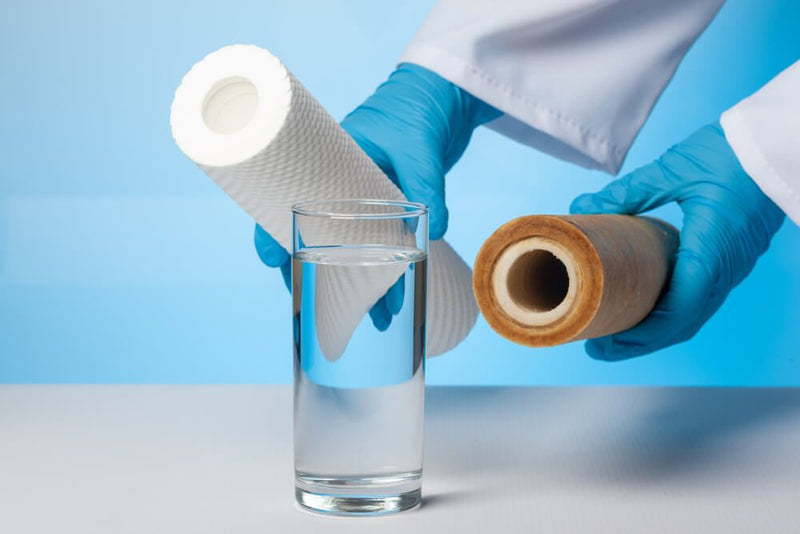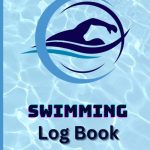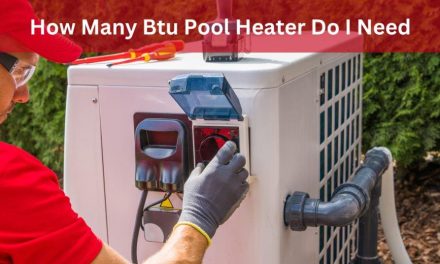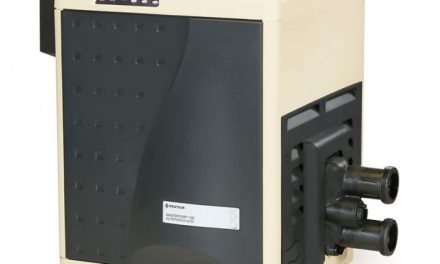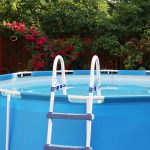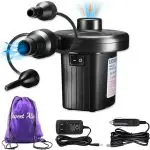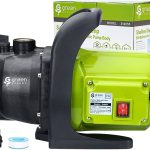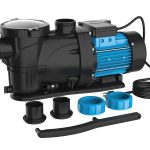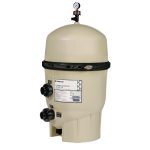Pool filters should be cleaned when the pressure reading on the filter gauge increases by 8-10 PSI or reaches 25-30 PSI or higher. Regular filter cleaning ensures optimal filtration and maintains water quality in the pool.
Neglecting to clean the pool filters can lead to decreased filtration efficiency, cloudy water, and circulation problems. Cleaning frequency may vary depending on factors such as the size of the pool, the type of filter, and the pool usage. It is recommended to clean the filters at least once a month or whenever the pressure reading indicates a need for cleaning.
Proper filter maintenance is crucial for a clean and healthy swimming pool.
:max_bytes(150000):strip_icc()/home-organizingcleaninghow-to-clean-an-oven-05-real-simple-7f8bbaf53c814e9495daa8f5d76e9ad8.jpg)
Credit: www.realsimple.com
Importance Of Regular Cleaning
Regular cleaning of pool filters is of utmost importance to ensure the smooth functioning of your pool’s filtration system. Clean filters play a significant role in maintaining clean and clear water by trapping debris, dirt, and other pollutants. Neglecting filter cleaning can lead to reduced filtration efficiency, circulation problems, and even potential damage to the pool equipment.
By adhering to a regular cleaning schedule, you can enjoy the numerous benefits it offers. Firstly, regular cleaning helps to maintain optimal water flow, allowing the filters to effectively remove impurities. Secondly, it helps to extend the lifespan of the filters by preventing clogging and damage.
Lastly, clean pool filters promote better water quality, keeping your pool safe and healthy for swimming. Make sure to follow manufacturer guidelines and consult a professional if needed to determine the recommended cleaning frequency for your specific filter type.
Types Of Pool Filters
Pool filters should be cleaned regularly to ensure optimal performance and water clarity. There are three main types of pool filters: cartridge filters, sand filters, and diatomaceous earth (DE) filters. Cartridge filters consist of a pleated filter element that captures dirt and debris.
They are easy to clean and typically require cleaning every 4-6 weeks, depending on the pool usage. Sand filters use a bed of sand to trap particles. They require backwashing every 6-8 weeks to remove accumulated debris and maintain proper flow rate.
DE filters use a powder-like substance called diatomaceous earth to capture impurities. They provide the highest level of filtration but require more maintenance. DE filters need to be backwashed and recharged with DE powder every 4-8 weeks. Each type of filter has its pros and cons.
Cartridge filters are low maintenance but may need frequent cleaning. Sand filters are effective and low-cost but provide moderate filtration. DE filters offer superior filtration but require more maintenance and a higher cost. It’s essential to choose the right type of filter based on your pool’s needs and maintenance capabilities.
Regular cleaning and maintenance will ensure optimal filtration and prolong the lifespan of your pool filter.
Factors Affecting Cleaning Frequency
Pool filters should be cleaned regularly to ensure optimal performance. The frequency of cleaning depends on various factors such as pool usage and size, environmental conditions, and water quality. The frequency of pool usage and the size of the pool play a significant role in determining how often the filters should be cleaned.
Pools that are used frequently or have a large volume of water will require more frequent cleaning to remove debris and maintain proper filtration. Environmental conditions, such as the presence of trees, leaves, or pollen near the pool, can also impact the cleaning frequency.
These external factors can lead to an accumulation of debris in the filters, necessitating more frequent cleaning. Additionally, the quality of the water can affect the cleaning frequency. Pools with poor water quality, such as those with high levels of dirt, algae, or bacteria, may require more frequent cleaning to maintain a clean and healthy swimming environment.
In conclusion, the cleaning frequency of pool filters depends on factors like pool usage and size, environmental conditions, and water quality. Regular cleaning is essential to ensure efficient filtration and maintain a clean swimming pool.
Standard Cleaning Schedule
Pool filters should be cleaned on a standard cleaning schedule to ensure proper functioning. The recommended cleaning frequency varies depending on the type of filter. For cartridge filters, it is generally recommended to clean them every two to four weeks.
Sand filters, on the other hand, should be backwashed every four to six weeks. DE (diatomaceous earth) filters require more frequent cleaning, typically every month or so. Following these guidelines is crucial to maintain the efficiency of the pool filter and ensure clean and safe water for swimming.
Regular cleaning helps remove debris, dirt, and other contaminants from the filter, allowing it to operate effectively. Neglecting filter maintenance can result in reduced water flow, increased pressure, and compromised filtration efficiency. Therefore, it is essential to adhere to the recommended cleaning schedule to keep your pool filters in optimal condition.
Signs Your Pool Filter Needs Cleaning
When it comes to pool maintenance, one important aspect is regular cleaning of pool filters. To determine if your pool filter needs cleaning, there are certain signs to look out for. Firstly, pay attention to the pressure reading on the filter gauge.
Ideally, it should be between 8 and 15 PSI. If you notice a significant increase of 8 to 10 PSI or more, it’s a clear indication that your filter needs cleaning. Additionally, if your pool water appears cloudy or has a high level of debris, it’s another sign that your filter is dirty and needs to be cleaned.
Regularly inspecting and cleaning your pool filter will ensure proper filtration and maintain the water’s cleanliness and clarity. Remember to follow the manufacturer’s guidelines for filter maintenance for optimal results.
Diy Vs Professional Cleaning
Pool filter cleaning is an essential part of maintaining a clean and functioning pool. When it comes to DIY cleaning versus hiring a professional, there are pros and cons to consider. DIY cleaning allows you to save money and have more control over the process.
However, it can be time-consuming and requires the right tools and knowledge. On the other hand, hiring a professional ensures thorough cleaning and expert advice. They have the experience and equipment to properly clean the filter. However, it can be more expensive than doing it yourself.
Knowing when to hire a professional for filter cleaning depends on various factors. If you notice a significant drop in pressure or if your pool water is not clear, it’s a sign that your filter needs professional attention. Additionally, if you lack the time or expertise to clean the filter yourself, hiring a professional is a smart choice.
Ultimately, the frequency of pool filter cleaning depends on factors like pool usage, size, and local conditions. It’s recommended to clean the filter at least once every few months or as needed to ensure optimal pool performance.
Frequently Asked Questions Of How Often Should Pool Filters Be Cleaned?
How Do I Know When My Pool Filter Needs Cleaning?
When the pressure reading on your pool’s filter gauge increases by 8-10 PSI or reaches 25-30 PSI, it’s time to clean your pool filter.
How Often Do You Clean Filters In Pool?
Pool filters should be cleaned when the pressure reading on the filter gauge increases by 8-10 PSI or reaches 25-30 PSI or higher.
What Happens If You Don’T Clean Your Pool Filter?
Not cleaning your pool filter can lead to increased pressure, reduced filtration efficiency, and poor water quality.
What Is The Best Way To Clean Pool Filters?
To clean pool filters, check the pressure gauge reading, which should be between 8-15 PSI. If it increases by 8-10 PSI or higher, it’s time for cleaning.
Conclusion
Proper maintenance of pool filters is essential for keeping your swimming pool clean and healthy. Regular cleaning of pool filters ensures optimal filtration and prevents the accumulation of debris, dirt, and contaminants in your pool water. But how often should pool filters be cleaned?
The frequency of pool filter cleaning depends on several factors, including the type of filter, the size of the pool, and the local environmental conditions. As a general rule, it is recommended to clean your pool filters at least once every 2-4 weeks.
However, if you notice a significant increase in the pressure gauge reading or a decrease in water flow, it may be necessary to clean the filters more frequently. Regular maintenance of pool filters not only improves the efficiency of your filtration system but also extends the lifespan of your filters.
In addition to regular cleaning, it is important to conduct periodic inspections and replace worn-out filters as needed. By following a regular cleaning schedule and properly maintaining your pool filters, you can ensure clean and sparkling pool water all season long.
So, don’t forget to include pool filter cleaning in your routine pool maintenance tasks for a crystal clear swimming experience.

